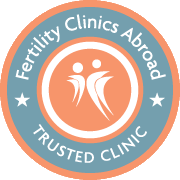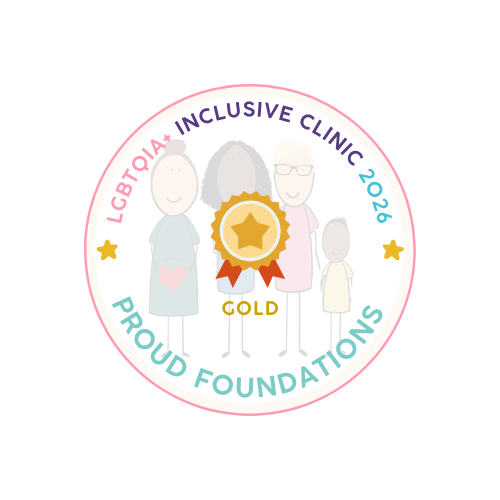Nowadays, thousands of couples around the globe face fertility problems, with male factor accounting for over 40% of the cases.
Have a look at 10 tips which could help you boost your sperm naturally.
1. Consume daily 60gr of nuts
Latest studies suggest a beneficial role for chronic nut consumption in sperm quality. 60 grams of almonds, hazelnuts, and walnuts daily on top of your usual Mediterranean diet can improve your sperm, since they are rich in omega-3, antioxidants such as vitamin C and E, selenium, zinc, and folate.
2. Optimize your weight
Stick on a healthy diet trying to regulate your body weight. Body weight fluctuations could influence spermatogenesis. Avoid eating junk food and try to drink a sufficient quantity of water daily, as this is one of the simplest ways of improving sperm count and quality. Semen is based on water, hence increasing liquid consumption can help increase the ejaculate and improve sperm production.
3. Exercise as much as you can
Your first and foremost ally in your quest for fertility is exercise, especially if you are overweight. Keep in mind that obesity is a cause of reduced fertility. There are encouraging studies showing that doing aerobic exercise periodically can boost your sperm count.
4. Manage your stress
Stress is found to interfere with certain hormones that are essential in sperm production. Severe or prolonged emotional stress can affect sperm count. Manage stress by taking long walks or finding a hobby that relaxes you.
5. Reduce coffee consumption
Several studies have shown that caffeine can affect fertility. One of the reasons might be related to DNA damage. It would be a good idea to reduce the cups of coffee you consume or cut it out from your daily habits, to boost your sperm.
6. Sperm supplements could be deceitful
There are plenty of advertisements concerning supplements, so you must be very cautious. Keep in mind that scientists have linked only a few compounds with improvements in sperm count. For instance, Ashwagandha, Vitamin C, D, E, and Selenium have passed a few tests. Some of them are very potent antioxidants, especially Ashwagandha boosts sperm count and even motility rates.
7. Keep a Healthy Lifestyle
Smoking cigarettes and using other tobacco products has been linked to male infertility. In most cases, nicotine and other chemicals found in cigarettes or in the smoke can lead to lower sperm counts. Limiting alcohol intake can also help decrease the risk of low testosterone levels and erectile dysfunction.
8. Be careful with pesticides
Studies show contradicting results yet, but many authors have found a link between exposure to pesticides and infertility. Moreover, there may be a high level of pesticide residues on your food, so it’s not a bad idea to turn into organic food when it comes to fruits and vegetables.
9. Avoid Overheating of the pubic area
The testicles are bound to protect spermatozoa by keeping them in a reduced temperature. Heat is known to damage sperm, so it’s advisable to avoid activities that may elevate the temperature of the testicles. Avoid the frequent use of saunas, hot tubs or placing laptops directly on your lap. In addition, tight underwear may also affect temperature regulation.
10. Make sure you get sufficient sleep
A recent study found that both restrictive and excessive sleep can cause low fertility rates in men. The highest sperm count was found in people who sleep around 7 hours a day.
References:
Chen, Q., Yang, H., Zhou, N., Sun, L., Bao, H., Tan, L., ... & Li, L. (2016). Inverse U-shaped association between sleep duration and semen quality: longitudinal observational study (MARHCS) in Chongqing, China. Sleep, 39(1), 79-86.
Chiu, Y. H., Afeiche, M. C., Gaskins, A. J., Williams, P. L., Petrozza, J. C., Tanrikut, C., ... & Chavarro, J. E. (2015). Fruit and vegetable intake and their pesticide residues in relation to semen quality among men from a fertility clinic. Human Reproduction, 30(6), 1342-1351.
Ghyasvand, T., Goodarzi, M. T., Amiri, I., Karimi, J., & Ghorbani, M. (2015). Serum levels of lycopene, beta-carotene, and retinol and their correlation with sperm DNA damage in normospermic and infertile men. International Journal of Reproductive BioMedicine, 13(12), 787.
Keskes-Ammar, L., Feki-Chakroun, N., Rebai, T., Sahnoun, Z., Ghozzi, H., Hammami, S., ... & Bahloul, A. (2003). Sperm oxidative stress and the effect of an oral vitamin E and selenium supplement on semen quality in infertile men. Archives of andrology, 49(2), 83-94.
Mumford, S. L., Kim, S., Chen, Z., Barr, D. B., & Louis, G. M. B. (2015). Urinary Phytoestrogens Are Associated with Subtle Indicators of Semen Quality among Male Partners of Couples Desiring Pregnancy1–3. The Journal of nutrition, 145(11), 2535-2541.
Nargund, V. H. (2015). Effects of psychological stress on male fertility. Nature Reviews Urology, 12(7), 373.
Ricci, E., Viganò, P., Cipriani, S., Somigliana, E., Chiaffarino, F., Bulfoni, A., & Parazzini, F. (2017). Coffee and caffeine intake and male infertility: a systematic review. Nutrition journal, 16(1), 37.
Rosety, M. Á., Díaz, A., Rosety, J. M., Pery, M., Brenes-Martín, F., Bernardi, M., ... & Rosety, I. (2017). Exercise improved semen quality and reproductive hormone levels in sedentary obese adults. Nutricion hospitalaria, 34(3).
Sallmén, M., Sandler, D. P., Hoppin, J. A., Blair, A., & Baird, D. D. (2006). Reduced fertility among overweight and obese men. Epidemiology, 17(5), 520-523.
Sengupta, P., Agarwal, A., Pogrebetskaya, M., Roychoudhury, S., Durairajanayagam, D., & Henkel, R. (2018). Role of Withania somnifera (Ashwagandha) in the management of male infertility. Reproductive biomedicine online, 36(3), 311-326.
Sharma, R., Harlev, A., Agarwal, A., & Esteves, S. C. (2016). Cigarette smoking and semen quality: a new meta-analysis examining the effect of the 2010 World Health Organization laboratory methods for the examination of human semen. European urology, 70(4), 635-645.
Shefi, S., Tarapore, P. E., Walsh, T. J., Croughan, M., & Turek, P. J. (2007). Wet heat exposure: a potentially reversible cause of low semen quality in infertile men. International braz j urol, 33(1), 50-57.
Shefi, S., Tarapore, P. E., Walsh, T. J., Croughan, M., & Turek, P. J. (2007). Wet heat exposure: a potentially reversible cause of low semen quality in infertile men. International braz j urol, 33(1), 50-57.

Dimitrios Dovas, MD, DFFP
Dimitrios is the Clinical Director of Newlife Center of Reproductive Medicine, in Thessaloniki Greece.











